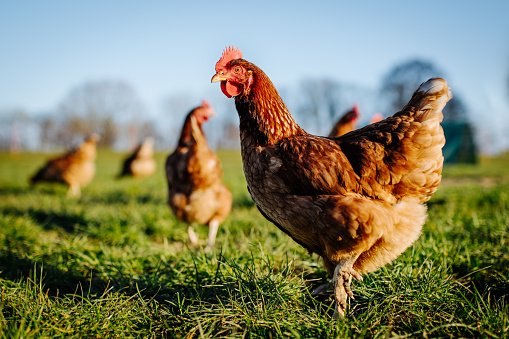Introduction.
Poultry farming is one of the most popular and profitable agricultural ventures in Nigeria. It’s not just about raising chickens; it’s a gateway to building a sustainable source of income while contributing to food security.
With Nigeria’s growing population and increasing demand for poultry products like eggs and chicken meat, there’s no better time to explore this business. Starting a poultry farm may seem challenging, but with the right steps, anyone can do it.
In this guide, I’ll walk you through everything you need to know to start a poultry business in Nigeria. From picking the right type of poultry to understanding costs, I’ll break it down so you can get started confidently.
Why Poultry Farming is a Good Business in Nigeria
Poultry farming has many advantages:
- High Demand for Poultry Products
Nigerians consume a lot of eggs and chicken. Eggs are used daily in homes, restaurants, bakeries, and fast-food businesses. Chicken meat is a favorite protein source for many. With Nigeria’s population of over 200 million people, the market for poultry products is huge. - Relatively Fast Returns
Compared to other livestock businesses, poultry farming offers quick returns. For example, broiler chickens are ready for market in 6–8 weeks, and layers start laying eggs within 4–6 months. - Job Creation
Whether you’re doing it on a small or large scale, poultry farming creates jobs. You’ll need help managing the birds, feeding them, cleaning their space, and handling sales. - Diverse Opportunities
The poultry business isn’t limited to raising chickens. You can explore other aspects like hatchery operations, egg distribution, feed production, or even poultry equipment sales.
How Do I Start a Poultry Business in Nigeria?
1. Decide on the Type of Poultry Business
You need to figure out the type of poultry farming you want to do. Here are the most common options:
- Broiler Farming: Raising chickens for meat.
- Layer Farming: Raising chickens for egg production.
- Cockerel Farming: Raising cockerels for meat (slower than broilers but more robust).
- Breeding: Producing chicks for other farmers.
- Turkey or Quail Farming: Alternatives to chicken with growing markets.
Each type has its pros and cons. For instance, broilers grow quickly and can bring in money faster, but layers provide a more stable, long-term income through egg production.
2. Create a Business Plan
A solid business plan will guide you through the process and help you manage costs. Your plan should include:
- The type of poultry you want to rear.
- Estimated costs (housing, feed, vaccination, labor, etc.).
- Expected income and profits.
- Marketing strategies.
3. Find a Suitable Location
Your location is crucial. Look for a place that’s:
- Far from residential areas (to avoid noise and odour complaints).
- Easily accessible for transporting feed, chicks, and finished products.
- Spacious and well-ventilated to keep your birds healthy.
You can start small if you have limited space and expand later.
4. Build or Buy Poultry Housing
Poultry housing should protect your birds from harsh weather and predators. Ensure it’s:
- Well-ventilated.
- Easy to clean.
- Spacious enough to prevent overcrowding.
The type of housing you build depends on the number of birds you plan to rear and your budget.
5. Buy Quality Chicks or Birds
Source your chicks or birds from reputable hatcheries or suppliers. Look out for signs of healthy chicks, such as:
- Active movement.
- Bright eyes.
- Smooth feathers.
Poor-quality chicks can lead to high mortality rates, which will hurt your profits.
6. Get the Right Equipment
You’ll need equipment like feeders, drinkers, heat lamps (for chicks), and an egg crate (for layers). Buy good-quality equipment to avoid constant repairs or replacements.
7. Feed and Care for Your Birds
Feed is one of the most significant costs in poultry farming, so it’s important to manage it wisely. Use high-quality feed to ensure your birds grow well. Provide clean water and keep their housing clean to prevent diseases.
Regular vaccination and routine checks by a vet are essential to keeping your flock healthy.
8. Market and Sell Your Products
Identify your target market early. You can sell directly to individuals, grocery stores, or restaurants. Social media platforms like Facebook, Instagram, and WhatsApp are great tools for reaching customers.
How Much Does It Cost to Start a Poultry Business?
The cost depends on your scale of operation. For example:
- Small-scale farm: With around 50 birds, you might need ₦100,000 to ₦150,000 for chicks, feed, housing, and other essentials.
- Medium-scale farm: If you’re starting with 500 birds, you may need between ₦800,000 and ₦1.5 million.
- Large-scale farm: This involves thousands of birds and can cost millions of naira.
Remember to start within your budget and grow as you gain experience.
Challenges in Poultry Farming
Every business has its challenges, and poultry farming is no different. Some common issues include:
- Diseases: A single outbreak can wipe out your flock. Vaccination and cleanliness are key.
- High Feed Costs: Feed prices can fluctuate, so it’s important to budget carefully.
- Marketing: Finding reliable buyers can be tough, especially if you’re new.
Despite these challenges, with proper planning and management, poultry farming can be very rewarding.
FAQs
1. How long does it take for broilers to be ready for sale?
Broilers are usually ready in 6–8 weeks.
2. How many eggs does a layer hen produce?
On average, a layer hen lays 250–300 eggs per year.
3. Do I need a lot of land to start?
Not necessarily. You can start small in your backyard and expand as your business grows.
4. How do I prevent diseases in my flock?
Keep their environment clean, provide vaccinations, and avoid overcrowding.
Final Thoughts
Starting a poultry business in Nigeria is a great way to earn an income while contributing to food security. It’s a business that can grow with you, whether you’re starting small or have big ambitions.
What steps will you take today to start your poultry farming journey?





GIPHY App Key not set. Please check settings